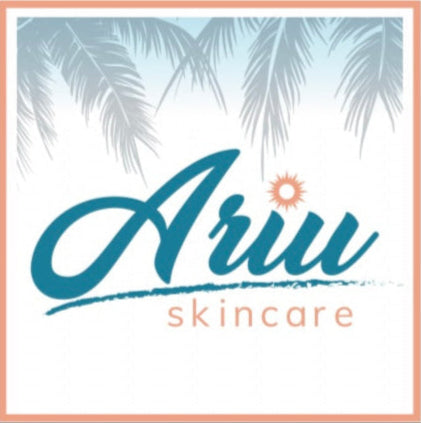Skincare Secrets:Featuring Urea for Dry, Itchy, Eczema, Psoriasis
Share
In the realm of skincare, certain ingredients often steal the spotlight, captivating the attention of both beauty enthusiasts and dermatologists alike. One such ingredient that has been generating quite the buzz in recent years is urea. From its intriguing mechanism of action to its array of dermatological benefits, let's delve into the fascinating world of urea and uncover why it skyrocketed to prominence in the skincare realm around 2023.
What is Urea:
Urea, often hailed as a powerhouse ingredient in skincare, is a naturally occurring compound found in the human body and various other organisms.
In skincare formulations, urea is crafted synthetically in laboratory settings, although it's worth noting that urea is also a natural component of your skin and is expelled in urine. Previously, obtaining urea for skin purposes typically required a prescription. However, with advancements in formulation and accessibility, urea-based products are now readily available over the counter, making its benefits more accessible to a broader audience. Despite its origins, urea is prized in dermatology for its multitude of skin-loving attributes.
Mechanism of Action:
One of the key attributes of urea lies in its remarkable ability to hydrate and exfoliate the skin simultaneously. Unlike traditional moisturizers that merely sit on the skin's surface, urea penetrates deep into the epidermis, where it acts as a humectant, attracting and retaining moisture within the skin cells. This intrinsic hydrating effect helps to replenish the skin's natural moisture barrier, resulting in improved hydration levels and enhanced skin softness.
Moreover, urea exhibits keratolytic properties, meaning it aids in the breakdown and removal of dead skin cells. By dissolving the bonds between corneocytes—the outermost layer of skin cells—urea facilitates gentle exfoliation, promoting cell turnover and revealing smoother, more radiant skin underneath. This dual-action approach not only addresses dryness and rough texture but also helps to alleviate various dermatological concerns associated with excessive buildup of dead skin cells.
Dermatological Conditions Benefiting from Urea:
The versatility of urea extends far beyond basic hydration, making it a valuable ally in the treatment of various dermatological conditions. Some notable conditions that can benefit from the inclusion of urea in skincare regimens include:
- Dry Skin: Urea's potent moisturizing properties make it an ideal candidate for combating dry, rough, and flaky skin. Whether caused by environmental factors, genetic predisposition, or underlying skin conditions, urea's hydrating prowess helps to restore moisture balance and alleviate discomfort associated with dryness.
- Hyperkeratosis: Characterized by the excessive buildup of keratinized skin cells, hyperkeratosis can lead to rough, thickened patches of skin, particularly on the heels, elbows, and knees. Urea's keratolytic action aids in softening and smoothing rough areas, reducing the thickness of callused skin, and promoting a more even skin texture.
- Keratosis Pilaris: Commonly referred to as "chicken skin," keratosis pilaris manifests as small, rough bumps on the skin, often found on the arms, thighs, or buttocks. Urea's exfoliating properties help to unclog pores, reduce the appearance of bumps, and improve the overall texture of affected areas.
- Psoriasis and Eczema: Both psoriasis and eczema are chronic inflammatory skin conditions characterized by dryness, redness, and scaling. Urea's hydrating and exfoliating effects can help to alleviate symptoms, soothe irritation, and promote healing in individuals with these conditions.
Important Considerations for Pregnant and Breastfeeding Individuals:
While urea offers a multitude of benefits for skin health, it's essential to exercise caution, particularly for pregnant and breastfeeding individuals. Before incorporating skincare products containing urea into their routines, it's advisable for expectant or lactating individuals to consult with their obstetrician-gynecologist (OBGYN) and dermatologist regarding the safety of this ingredient. While urea is generally considered safe for topical use, individual circumstances may vary, and healthcare professionals can provide personalized guidance based on medical history and current health status.
Percentages of Urea Used in Skincare Products
Urea, a versatile ingredient in skincare formulations, can be found in various concentrations, tailored to address specific skin conditions effectively. Here's a guideline on recommended urea percentages for different skincare needs, always be sure to patch test any new product for a duration of 24-48 hours:
- Heel Hyperkeratosis, Eczema, Psoriasis: For treating conditions such as heel hyperkeratosis, eczema, or psoriasis, opt for skincare products containing urea in concentrations ranging from 20 to 40 percent. These higher percentages provide intensive exfoliation and hydration, making them ideal for tackling stubborn dryness and thickened skin patches.
- Keratosis Pilaris: To address keratosis pilaris, commonly known as "chicken skin," consider products with urea concentrations between 10 to 20 percent. This range offers effective exfoliation to unclog pores and smooth rough, bumpy skin texture associated with keratosis pilaris.
- Facial Moisturizer: For facial moisturization and gentle exfoliation, opt for skincare products with urea concentrations ranging from 2 to 10 percent. These lower percentages provide hydration and mild exfoliation without causing irritation, making them suitable for daily use on facial skin.
In conclusion, urea stands as a formidable contender in the realm of skincare, offering a unique blend of hydration and exfoliation that addresses a wide range of dermatological concerns. From dry skin to hyperkeratosis and beyond, the transformative effects of urea make it a valuable asset in achieving healthy, radiant skin. However, it's crucial to approach skincare with diligence and awareness, particularly when navigating pregnancy and breastfeeding. By consulting with healthcare professionals and incorporating urea into a comprehensive skincare regimen, individuals can harness the power of this dermatological marvel to unlock their skin's full potential.
